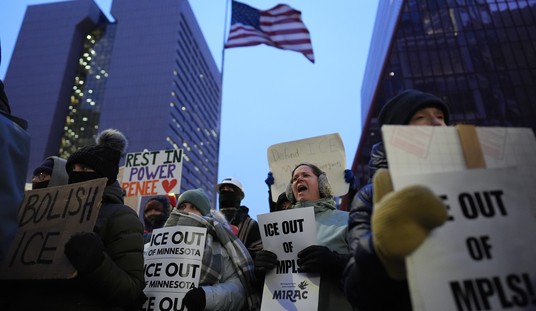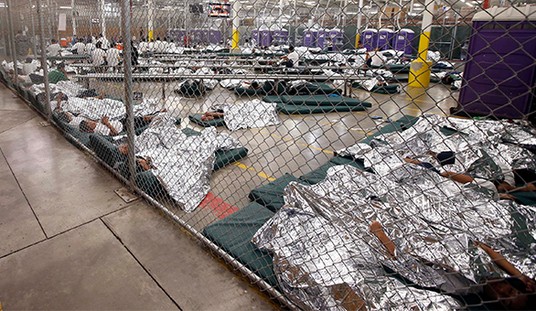Ohio Attorney General Dave Yost made a bold decision to require abortion providers to halt performing most abortions, deeming them as elective, nonessential procedures. The order to suspend services specifically applies to nonessential surgical abortions.
The decision falls within the guidelines established by the state health department’s March 17 order to cancel all “nonessential or elective surgeries and procedures”. In order to preserve personal protective equipment (PPE) in hospital and clinic settings, a strong order to limit services was determined to be necessary.
Governor DeWine has issued some of the strongest orders for his state of all the governors in the country. Letters were sent to clinics explaining the decision.
In letters to clinics, Deputy Attorney General Jonathan Fulkerson framed the crackdown as a necessary measure amid a public health crisis that’s drawn dire warnings from Ohio leaders. Gov. Mike DeWine (R) has led the way with dramatic policies — shutdowns of schools, restaurants, bars and more — to curb the virus that has now infected hundreds and killed three people in the state. Officials around the country fear the pandemic will become far deadlier if strained systems grow overwhelmed.
“This is an unprecedented time in the state’s history, and everyone must do their part to help stop the spread of this disease,” Fulkerson wrote, warning that the department of health will “take all appropriate measures” if providers don’t fall in line.
The attorney general’s office responded to complaints made against some abortion providers on Friday and Saturday. Ohioans complained that abortion clinics were still open and operating though, to the critics, abortion is a nonessential medical procedure. Abortions have not come to a screeching halt in Ohio. There is wiggle room in the wording of the governor’s order. Planned Parenthood, for example, is finding a way to work around the order.
But after receiving complaints, Ohio Attorney General Dave Yost ordered two of them to follow Ohio Health Director Amy Acton’s mandate. Yost’s warning applies to all such clinics in the state.
However, operators of at least one of the clinics responded that they would both comply with Acton’s order and continue to provide abortions.
“Under that order, Planned Parenthood can still continue providing essential procedures, including surgical abortion, and our health centers continue to offer other health care services that our patients depend on. Our doors remain open for this care,’” said a joint statement from Iris E. Harvey and Kersha Deibel, respectively presidents and CEO of Planned Parenthood of Greater Ohio and Planned Parenthood Southwest Ohio Region. The latter runs an abortion clinic in Cincinnati.
Abortion providers consider their services as essential, not nonessential services. This struggle, as the state battles the spread of the coronavirus, comes down to pro-life groups objecting to abortion clinics continuing to operate and using up medical resources, and pro-abortion clinics viewing abortion as essential health care for women. The two sides of this argument aren’t going to agree in the midst of a pandemic. The governor’s office has to play referee through letters issued by the state’s attorney general. That office warns clinics that if the order isn’t adhered to, there will be consequences, though those consequences are not spelled out.
The National Abortion Federation (yes, there is such an organization) calls elective abortions “essential health service”.
Abortion is provided for almost one in five pregnancies in the United States, as part of the continuum of pregnancy care. It is an essential health service. An individual and family decide to end a pregnancy for a complex constellation of reasons that include the impact of pregnancy and birth on their health, ability to work, and strained economic circumstances. These are conditions that do not go away—and are likely heightened—in pandemic conditions. Denying or deferring abortion care places an immediate burden on patients, their families, and the health system, and can have profound and lasting consequences.
The American College of Obstetricians and Gynecologists doesn’t want abortion procedures included in Ohio’s guidance against elective procedures.
“As hospital systems, clinics, and communities prepare to meet anticipated increases in demand for the care of people with COVID-19, strategies to mitigate spread of the virus and to maximize health care resources are evolving. Some health systems, at the guidance of the CDC, are implementing plans to cancel elective and non-urgent procedures to expand hospitals’ capacity to provide critical care.
“While most abortion care is delivered in outpatient settings, in some cases care may be delivered in hospital-based settings or surgical facilities. To the extent that hospital systems or ambulatory surgical facilities are categorizing procedures that can be delayed during the COVID-19 pandemic, abortion should not be categorized as such a procedure. Abortion is an essential component of comprehensive health care. It is also a time-sensitive service for which a delay of several weeks, or in some cases days, may increase the risks or potentially make it completely inaccessible. The consequences of being unable to obtain an abortion profoundly impact a person’s life, health, and well-being.
The governor of Ohio is aggressively working to mitigate the spread of a pandemic. Idealogical arguments over abortion were bound to enter the fray, given the influence the pro-abortion forces have in today’s politics. It’s completely understandable that the state’s leadership is trying to keep watch over the use of resources like protective gear for medical professionals that are in short supply.







Join the conversation as a VIP Member